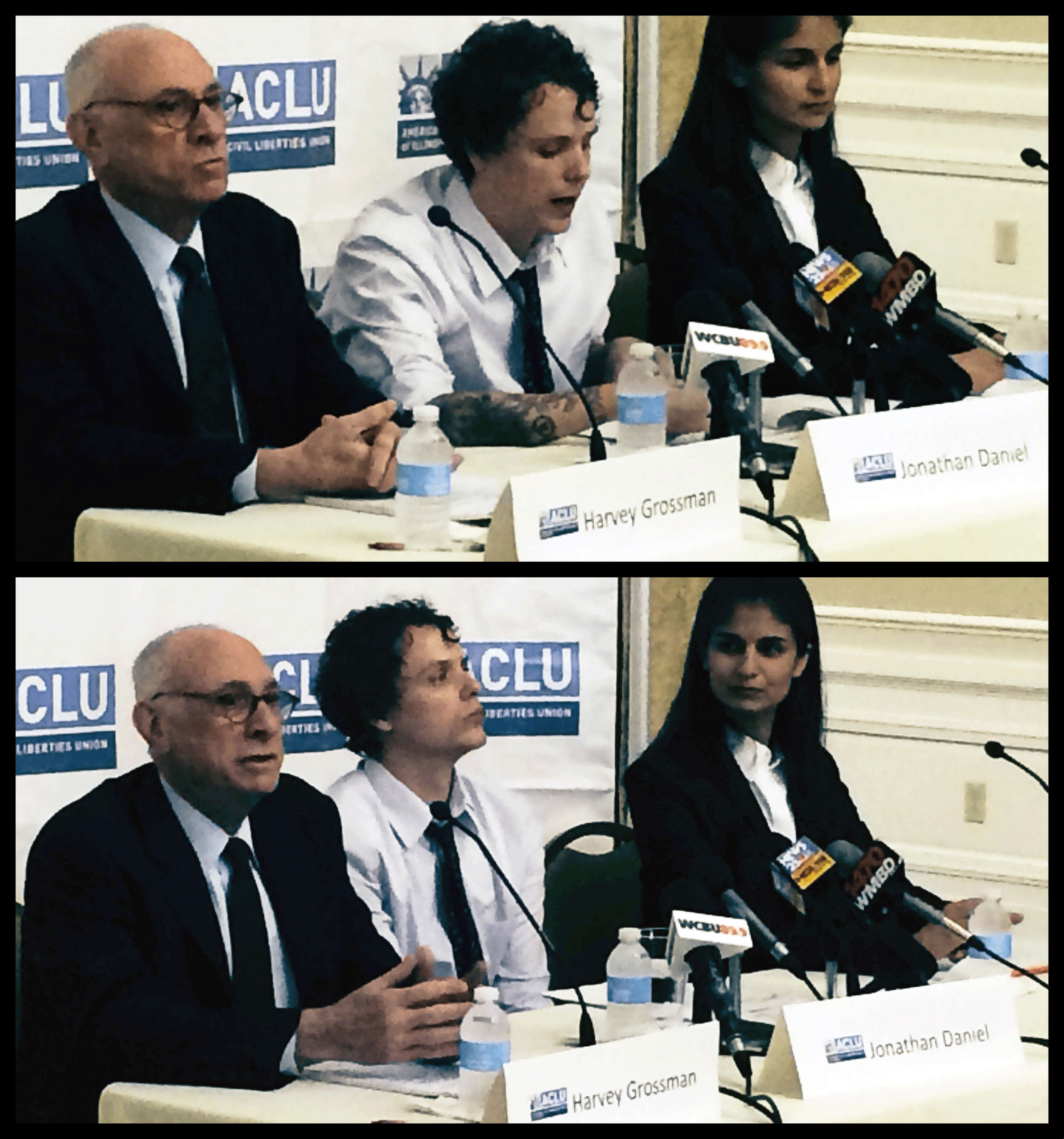A 29-year-old Peoria resident is suing the City, the Mayor and several officials for their overreaction to a Twitter parody of the Mayor. The city officials caused the parody to be turned into a police matter, leading to a raid on Mr. Daniel's home, the seizure of his personal property and his arrest and detention. Jon Daniel, represented by the ACLU of Illinois, is asking a federal court in Peoria to hold the Mayor, the City Manager, the former police chief and other City officials accountable for violating his First and Fourth Amendment rights by responding to a parody account spoofing the Mayor by launching a manhunt for the account’s author.
A press conference announcing the filing of the lawsuit on June 12, 2014 received wide public attention both in Peoria and across the nation. Below is a sampling of the stories that reported on the event.
- Peoria Journal-Star, June 11, 2014
- The Chicago Tribune, June 12, 2014
- Wired Magazine, June 12, 2014
- Ars Technica, June 12, 2014
- Mashable, June 12, 2014
- Reason.com, June 12, 2014
- Central Illinois Proud, June 12, 2014
- Northern Public Radio, June 13, 2014
- Gawker, June 13, 2014
- Policy Mic, June 13, 2014
- Peoria Journal Star editorial, June 14, 2014
- Peoria Journal Star open letter, June 15, 2014
- United Press International, June 16, 2014
- Chicago Tribune Editorial, June 23, 2014
